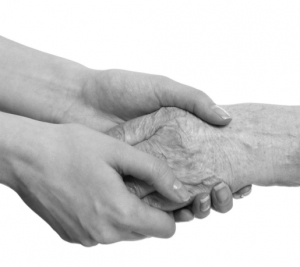“She’s really impossible… one of the grumpiest people I’ve ever met. We’ve had nurses come back from escorting patients to her almost in tears… if I worked with her, I’d be reporting her on a daily basis.”
I really, truly believe that there’s not a single person who gets up in the morning, looks in the mirror and says “How can I go to work to do a bad job today?” So what happens? Like the doctor described above, what happens to people that puts them in such a negative frame of mind? There are probably a few real jerks out there – maybe even some with real problems (like a borderline personality disorder). There is literature on disruptive physicians and some of this I’ll address in other posts (substance abuse, depression, compassion fatigue). For now, just consider the idea that most people who misbehave at work have something else going on.
It’s a lot easier to put up with negativity (and even downright rudeness) when you are rested. When you are exhausted, it’s just a lot harder. I think the key is recognizing that being tired makes you vulnerable to act in ways that aren’t “normal” for you…. and then consciously thinking about how to handle it. Here’s a few things to think about as you are taking a deep breath (or two or three..)
1. Don’t fall to their level. Whatever you do – look cool.
2. Don’t respond at all if tempers are hot. Let silence have a minute to work.
3. Try to consciously find a sense of compassion for them. What if their spouse just left them? What if they just got called on the carpet by their program director or chairman? It’s not an excuse – because really bad behavior is never the right answer – but maybe there are some extenuating circumstances.
4. Be personal… in a good way. Watch for an opportunity to discuss last nights football/baseball/basketball/hockey game, or the latest election, or anything that is not related to work. Learn people’s names, ask where they are from, etc. Humor is an important tool, if the opportunity arises and the other person is receptive. Anything you can do to befriend the other person will help – If you are able to develop relationships it’s harder for meltdowns to occur.
5. If it gets out of control you can always – politely and sincerely – walk away with “I’m so sorry you are having a tough day. I hope it gets better for you.”
This post originally appeared May 9, 2010 on Dr. Brandt's website Wellness Rounds
~~~
Mary L. Brandt, M.D. is a professor of Surgery, Pediatrics, and Medical Ethics at Baylor College of Medicine and a practicing pediatric surgeon at Texas Children’s Hospital. She is involved in education on a day-to-day basis in her clinical work. She also thinks about medical education on a bigger scale through her work as Vice Chair of Education of the Michael E. DeBakey Department of Surgery and Associate Dean of Student Affairs at Baylor College of Medicine. She actively blogs and tweets.




















.jpg)


